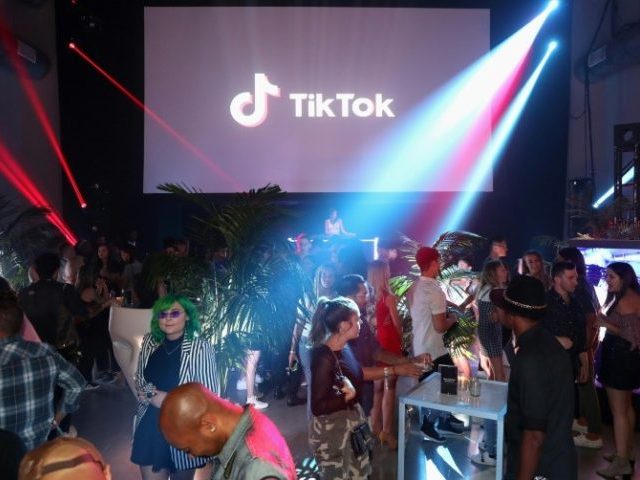Internal documents from popular social media platform TikTok appear to show the company instructing moderators to censor political content on the platform that could anger the Chinese government.
Internal documents from TikTok, the short-form video app and spiritual successor to the app Vine, appear to show the firm instructing moderators to remove content which may anger the Chinese government according to the Guardian. The company’s content guideline documents break infringing content into two categories: “violations,” and “visible to self.” Violations would see the content removed by videos marked “visible by self” would only be viewable by the people that posted them to the platform, similar to a shadowban.
The Guardian states that the sections which addressed political issues that may anger the Chinese government were designed to look more all-purpose. Politically subversive content would fall under the “visible to self” category according to the Guardian. Business Insider reports that this includes:
- Criticizing China’s socialist system was incorporated in a ban on “criticism/attack towards policies, social rules of any country, such as constitutional monarchy, monarchy, parliamentary system, separation of powers, socialism system.”
- The “demonization or distortion of local or other countries’ history.” Examples listed included the May 1998 riots of Indonesia, the Cambodian genocide, and Tiananmen Square.
- “Highly controversial topics” were banned. These included: “separatism, religion sects conflicts, conflicts between ethnic groups, for instance exaggerating the Islamic sects conflicts, inciting the independence of Northern Ireland, Republic of Chechnya, Tibet and Taiwan and exaggerating the ethnic conflict between black and white.”
The app also forbid the specific mention of 20 current and former world leaders including Kim Jong-il, Kim Il-sung, Mahatma Gandhi, Vladimir Putin, Donald Trump, Barack Obama, Kim Jong-un, Shinzo Abe, Park Geun-Hee, Joko Widodo and Narendra Modi. Surprisingly, China’s premier Xi Jinping was not on the list.
TikTok’s parent company ByteDance said in a statement that the outlines were outdated and have since been replaced. ByteDance stated:
In TikTok’s early days we took a blunt approach to minimizing conflict on the platform, and our moderation guidelines allowed penalties to be given for things like content that promoted conflict, such as between religious sects or ethnic groups, spanning a number of regions around the world.
As TikTok began to take off globally last year, we recognized that this was not the correct approach, and began working to empower local teams that have a nuanced understanding of each market. As we’ve grown we’ve implemented this localized approach across everything from product, to team, to policy development.
The old guidelines in question are outdated and no longer in use. Today we take localized approaches, including local moderators, local content and moderation policies, local refinement of global policies, and more. We also consult with a number of independent local committees and are working to scale this at a global level, including forming an independent committee of leading industry organizations and experts to continually assess these policies.
We also understand the need to be more transparent in communicating the policies that we develop and enforce to maintain a safe and positive app environment. Users gravitate to TikTok because it provides an app experience that fosters their creativity, and we are committed to supporting that across our teams, product, policies, and the way in which we openly communicate with our community.
ByteDance purchased the American lip-syncing app Musical.ly in 2017 for $1 billion and combined it with its video app Douyin to create TikTok. The app quickly became the top free non-gaming iOS app in 2018.
Lucas Nolan is a reporter for Breitbart News covering issues of free speech and online censorship. Follow him on Twitter @LucasNolan or email him at lnolan@breitbart.com

COMMENTS
Please let us know if you're having issues with commenting.